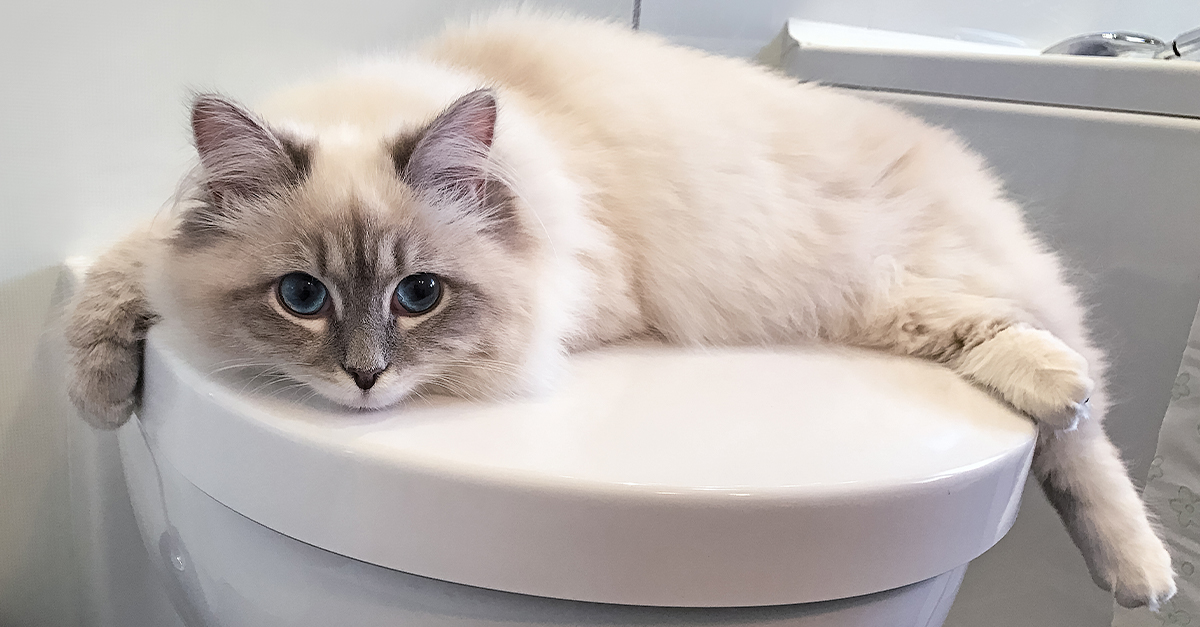Why You Should Never Flush Cat Poop Down Your Toilet - Important Information
Or Book Technician HereHow do you feel about Can You Flush Cat Poop Down The Toilet??

Introduction
As feline proprietors, it's necessary to bear in mind how we take care of our feline close friends' waste. While it may seem hassle-free to purge cat poop down the commode, this practice can have harmful consequences for both the atmosphere and human wellness.
Alternatives to Flushing
The good news is, there are more secure and a lot more liable ways to dispose of pet cat poop. Take into consideration the adhering to choices:
1. Scoop and Dispose in Trash
One of the most typical approach of taking care of pet cat poop is to scoop it into an eco-friendly bag and toss it in the garbage. Make sure to utilize a committed clutter inside story and throw away the waste immediately.
2. Use Biodegradable Litter
Choose biodegradable cat clutter made from materials such as corn or wheat. These litters are environmentally friendly and can be safely disposed of in the garbage.
3. Bury in the Yard
If you have a backyard, think about hiding feline waste in a designated location away from veggie gardens and water resources. Be sure to dig deep adequate to avoid contamination of groundwater.
4. Mount a Pet Waste Disposal System
Purchase a pet garbage disposal system especially developed for feline waste. These systems make use of enzymes to break down the waste, reducing odor and ecological impact.
Health Risks
Along with ecological concerns, purging pet cat waste can additionally pose health and wellness risks to people. Pet cat feces might contain Toxoplasma gondii, a parasite that can cause toxoplasmosis-- a potentially serious illness, especially for expecting ladies and individuals with damaged body immune systems.
Environmental Impact
Purging cat poop introduces unsafe microorganisms and bloodsuckers right into the water system, positioning a significant threat to water ecosystems. These contaminants can adversely affect marine life and concession water quality.
Final thought
Accountable pet ownership extends past offering food and sanctuary-- it additionally involves proper waste management. By avoiding flushing feline poop down the bathroom and choosing alternate disposal approaches, we can minimize our environmental impact and shield human health.
Why Can’t I Flush Cat Poop?
It Spreads a Parasite
Cats are frequently infected with a parasite called toxoplasma gondii. The parasite causes an infection called toxoplasmosis. It is usually harmless to cats. The parasite only uses cat poop as a host for its eggs. Otherwise, the cat’s immune system usually keeps the infection at low enough levels to maintain its own health. But it does not stop the develop of eggs. These eggs are tiny and surprisingly tough. They may survive for a year before they begin to grow. But that’s the problem.
Our wastewater system is not designed to deal with toxoplasmosis eggs. Instead, most eggs will flush from your toilet into sewers and wastewater management plants. After the sewage is treated for many other harmful things in it, it is typically released into local rivers, lakes, or oceans. Here, the toxoplasmosis eggs can find new hosts, including starfish, crabs, otters, and many other wildlife. For many, this is a significant risk to their health. Toxoplasmosis can also end up infecting water sources that are important for agriculture, which means our deer, pigs, and sheep can get infected too.
Is There Risk to Humans?
There can be a risk to human life from flushing cat poop down the toilet. If you do so, the parasites from your cat’s poop can end up in shellfish, game animals, or livestock. If this meat is then served raw or undercooked, the people who eat it can get sick.
In fact, according to the CDC, 40 million people in the United States are infected with toxoplasma gondii. They get it from exposure to infected seafood, or from some kind of cat poop contamination, like drinking from a stream that is contaminated or touching anything that has come into contact with cat poop. That includes just cleaning a cat litter box.
Most people who get infected with these parasites will not develop any symptoms. However, for pregnant women or for those with compromised immune systems, the parasite can cause severe health problems.
How to Handle Cat Poop
The best way to handle cat poop is actually to clean the box more often. The eggs that the parasite sheds will not become active until one to five days after the cat poops. That means that if you clean daily, you’re much less likely to come into direct contact with infectious eggs.
That said, always dispose of cat poop in the garbage and not down the toilet. Wash your hands before and after you clean the litter box, and bring the bag of poop right outside to your garbage bins.
https://trenchlesssolutionsusa.com/why-cant-i-flush-cat-poop/

Hopefully you enjoyed our section about How to Dispose of Cat Poop and Litter Without Plastic Bags. Thank you so much for finding the time to browse our post. Kindly take the opportunity to promote this write-up if you enjoyed it. Thank-you for going through it.
Free Estimate